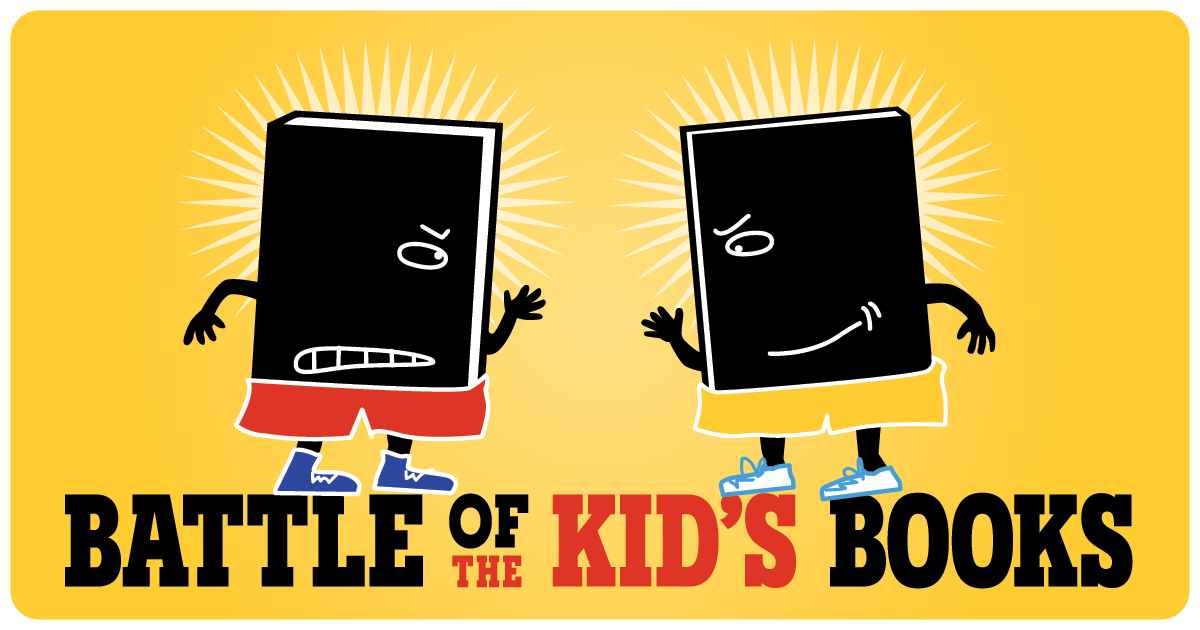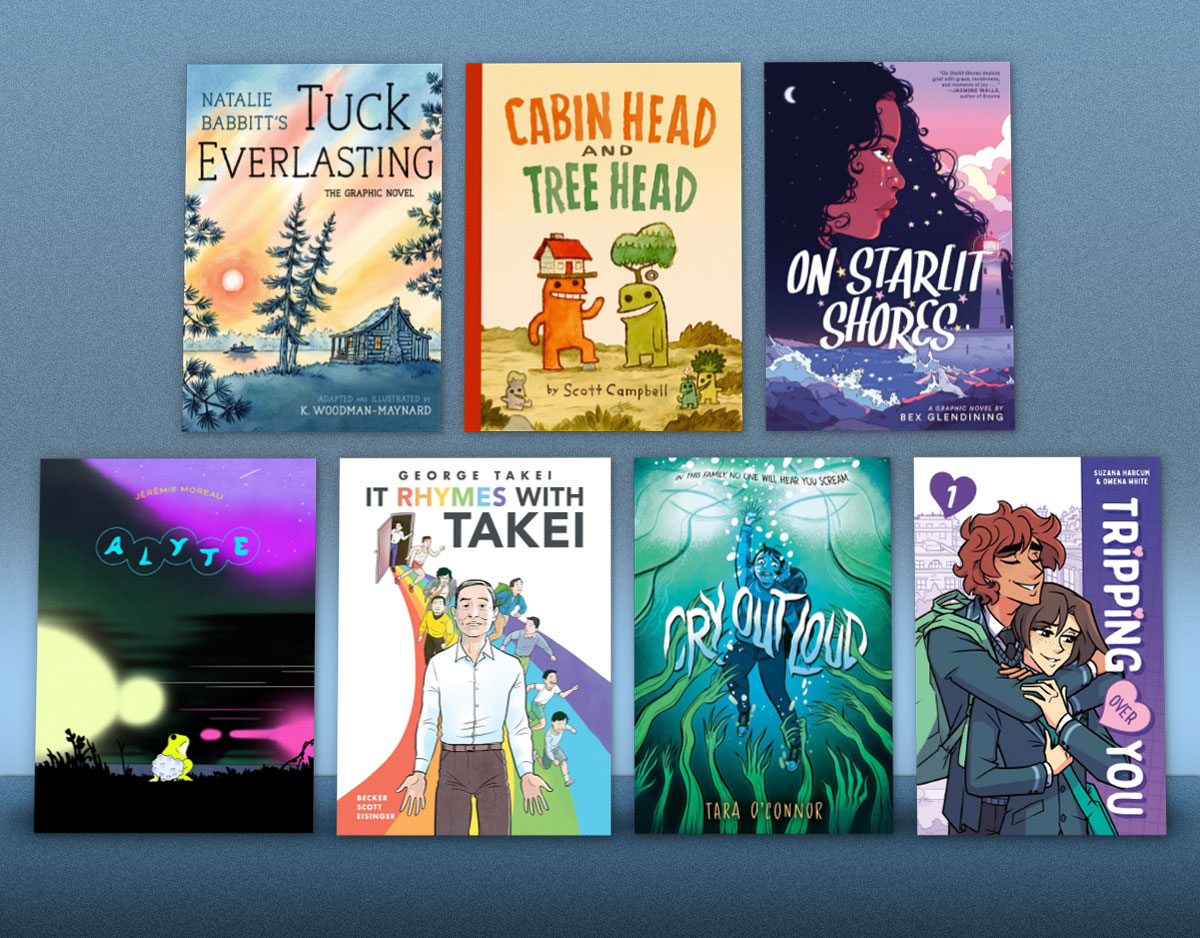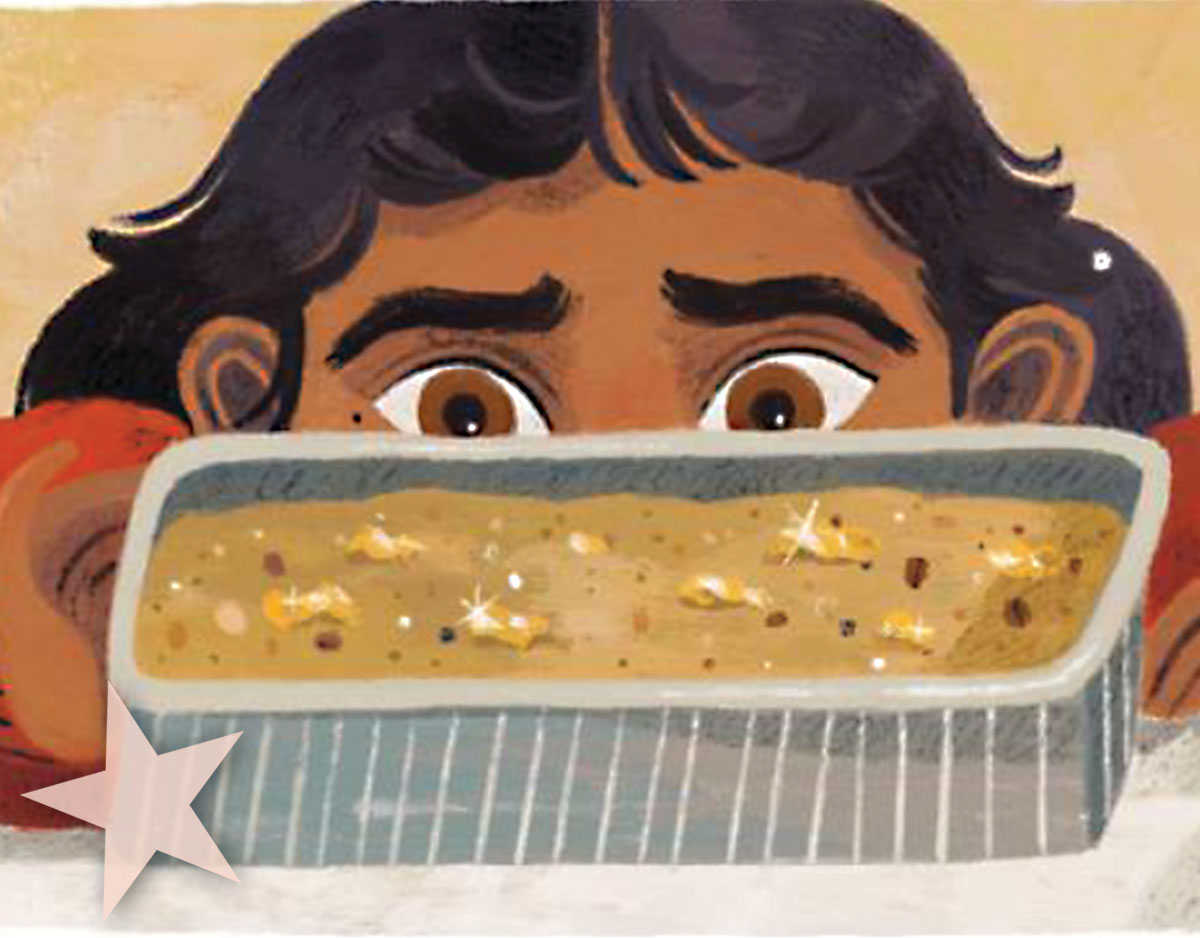SCROLL DOWN TO READ THE POST
Round 2, Match 2: Eleanor & Park vs Far Far Away
 JUDGE – RAE CARSON JUDGE – RAE CARSON |
|
| Eleanor & Park by Rainbow Rowell Saint Martin’s Press |
Far Far Away by Tom McNeal Knopf/Random House |
I read Eleanor & Park by the phenomenally gifted Rainbow Rowell first. The narrative is a strongly voiced tight third, rotating between Eleanor, the chubby, wild-haired, fashion-challenged new girl in town, and Park, the half-Korean boy who, by comparison, is well accepted in the community and has a loving family. The story takes place in the 1980’s, and the frequent pop culture references provide touchstones of connection for our two protagonists. When Park first sees Eleanor get on the school bus, he is less than impressed. Their slowly burgeoning acceptance-turned-infatuation-turned-love-turned-deep friendship is a beautiful thing to experience. A subplot involving Eleanor’s harsh home environment is harrowing and heartbreaking. I had minor quibbles with some muddled pacing in the middle and the underdevelopment of a few secondary players, but nothing that interfered with my reading enjoyment. I loved this book. Upon finishing, I wadded up my third tissue, sighed happily, and thought, “This is it. This is The One.”
Then I read Far, Far Away. Before I discuss this book, I must confess something: I have Reading Biases. Two of them are specific to Tom McNeal’s lovely book. First, I’m biased against omniscient narratives. Too often, omni POVs serve as protection against critical crucifixion while they “tell” rather than “show,” or insert the author’s voice at the expense of Story. Second, I’m biased against books that purport to be for children but are really for and about adults, or at least written through the filter of adult nostalgia. Far, Far Away triggered both these biases within the first few pages. In short, I was prepared to hate it.
McNeal’s book is narrated by the ghost of Jacob Grimm. Though told in first person, the narrative is functionally omniscient as he tells the story of Jeremy Johnson Johnson and a strange bakery in a somewhat ephemeral-seeming small town. An early flashback scene demonstrates my potential problems with the book: Jacob Grimm enters a library and encounters other ghosts, who inform us that generations of historical research and literary criticism have cast discomfiting shadows on Jacob’s life work. Meta-loving Adult Rae cackled madly. Kid Rae rolled her eyes. But as I continued to read, Kid Rae’s voice grew quieter and quieter. Jacob’s narrative began to win me over with its lovely language, its fairy tale quality, the melancholy voice, the sense of impending danger, and the delightful quirkiness of the characters. I became genuinely frightened for Jeremy, which made the happy ending all the more satisfying. By the time I turned the last page, I had fallen in love. Again. Dang it.
Two books. Both darn near perfect. I highly recommend either one. And yet, I must choose.
Because it overcame my biases, and because I can’t stop thinking about it days after finishing, I’m giving the slight edge to Far, Far Away.
— Rae Carson

A part of me has just died, ruthlessly killed by Ms. Carson’s inability to be biased, just for this once. As well as the heartlessness of the Battle Commander’s impossible pairings.
Eleanor and Park was the first book that I read in this year’s Battle of the Books. I remember just thinking to myself that it was all downhill from here, that there could not be any book that trumped the sheer perfection that was Rainbow Rowell’s maiden novel. Probably one of the most diverse, unexpected, and moving pieces of realistic fiction that I have ever read: I was almost correct. That was until I read the rest of this year’s bracket, and determined that they were all incomparably amazing pieces of literature. I completely fell in love with the love that Park had for Eleanor, along with his final act of heroism, saving the life of his first love, even if it meant losing her. Touching, adorable, and filled with dozens of “aww” inspiring moments, your heart would have to be made of steel to not want the magical love that Eleanor and Park have. I then read Far, Far Away, with the image of it vindictively stomping over the lifeless body of E&P, and I immediately believed that there was no way that I ever could like it. Much to my dismay, I was powerless against Jacob, Jeremy, and Ginger, convinced that the cake that I had eaten prior to opening the book was bewitched. Completely my kind of genre, fairy tale mixed with fantasy, I fell to the greater power that was Tom McNeal’s storytelling. But I will still stubbornly disagree with Ms. Carson’s final decision, putting her own selfish needs of an unbiased, clear conscience above that of all E&P fans.
– Kid Commentator GI
I, for one, am glad that Far, Far Away overcame Ms. Carson’s biases. Far, Far Away is a complex, haunting fantasy (filtered by adult nostalgia, sure, but that’s okay for a somewhat nostalgic 14-year-old), while Eleanor and Park is just that: Eleanor and Park. There’s nothing wrong with a poignant love story, but by the end, it gets too emotive, too forced – powerful, but overwrought. For me, the unexpected is more intriguing, and while I was a bit surprised by McNeal’s BIG PLOT TWIST (I sort of saw it coming), it worked. Ms. Carson is right, Far, Far Away might not be for children, it might be more for young adults. But it’s better than Hokey Pokey, for sure. If that book isn’t filtered by adult nostalgia, I don’t know what is. Even P.S. Be Eleven and The Thing About Luck are, just a bit more subtly. If these books weren’t filtered by adult nostalgia, we (not kids) wouldn’t be reading and enjoying them. Now, everyone’s going to be deeply upset about Eleanor and Park, before remembering that it’s probably going to win the Undead Poll (I’m still rooting for Rose Under Fire, which may have a remote chance).
– Kid Commentator RGN
THE WINNER OF ROUND 2 MATCH 2:
FAR FAR AWAY
About Battle Commander
The Battle Commander is the nom de guerre for children’s literature enthusiasts Monica Edinger and Roxanne Hsu Feldman, fourth grade teacher and middle school librarian at the Dalton School in New York City and Jonathan Hunt, the County Schools Librarian at the San Diego County Office of Education. All three have served on the Newbery Committee as well as other book selection and award committees. They are also published authors of books, articles, and reviews in publications such as the New York Times, School Library Journal, and the Horn Book Magazine. You can find Monica at educating alice and on twitter as @medinger. Roxanne is at Fairrosa Cyber Library and on twitter as @fairrosa. Jonathan can be reached at hunt_yellow@yahoo.com.
ADVERTISEMENT
SLJ Blog Network
Which Publisher Has Won the Most Caldecott Medals This Century?
For Some Reason They Let me Interview Questlove & S.A. Cosby??? I’m Not Questioning It
Extraordinary Voyages | This Week’s Comics
On Writing Girls Who Don’t Have to Shrink to Be Loved, a guest post by Estelle Laure
The Classroom Bookshelf is Moving
Our 2026 Preview Episode!
ADVERTISEMENT
ADVERTISEMENT








